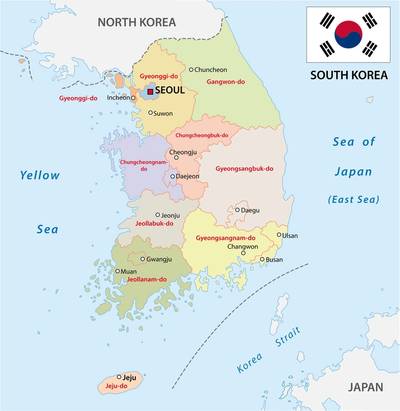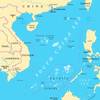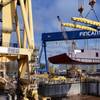South Korea puts Eyes on China in Disputed Yellow Sea
South Korea has deployed a large stationary floating platform in a disputed section of the Yellow Sea, escalating tensions with China over a contested maritime zone where both countries' exclusive economic zones (EEZs) overlap. The move, described by Seoul as a "reciprocal measure," comes in response to a growing Chinese presence in the area, which includes numerous offshore structures that China claims are for fish farming.
The deployment was confirmed Wednesday by South Korean Oceans Minister Kang Do-hyung during a parliamentary session. He stated the new platform will be used for conducting environmental surveys but emphasized that it was also a countermeasure to China's expanding activity in the so-called Provisional Measures Zone—a jointly managed area pending formal maritime boundary delimitation.
“South Korea has taken reciprocal action with a large-scale floating object,” Kang said, underscoring the government’s increasing concern over China's maritime intentions in what Seoul refers to as the West Sea.
The disputed area has become a flashpoint in recent months. In February, a South Korean research vessel attempting to survey the Chinese-built structures was intercepted by Chinese coast guard ships and rubber boats carrying civilians, according to local media. A two-hour standoff ensued, prompting South Korea to dispatch its own coast guard. However, the South Korean vessel eventually withdrew.
The incident drew criticism from South Korean lawmakers, particularly from the ruling People Power Party, who view China’s growing footprint as a strategic encroachment.
“This is a direct challenge to our marine security,” said Kwon Young-se, chairman of the party’s emergency response committee. He likened China’s activity in the Yellow Sea to its more assertive actions in the South China Sea, where Beijing has constructed artificial islands and military installations on contested reefs.
“The West Sea is not just a body of water—it is Korea,” Kwon emphasized. “It is home to our fishermen and forms the front line of our national security.”
China Pushes Back
In response to the developments and the mounting criticism, the Chinese embassy in Seoul issued a statement Wednesday denying any wrongdoing and pushing back against what it called “unfounded” claims.
“The relevant facilities set up by China are deep-sea fishery aquaculture installations located within China’s coastal waters,” said a spokesperson. “They are a reasonable use of offshore marine resources and do not violate any agreements.”
The embassy added that China and South Korea have maintained communication through diplomatic channels and urged against the politicization of the issue. “We hope both sides can manage their differences and avoid unnecessary escalation,” the statement read.
Strategic Implications
Though framed around fisheries and environmental monitoring, the deployment of marine structures by both sides highlights the increasingly strategic nature of disputed maritime zones, especially as nations vie for control of resources and influence over critical shipping routes.
Experts say the rising tensions in the Yellow Sea may mirror geopolitical dynamics seen in the South China Sea, where territorial assertions often begin with civilian or scientific installations and gradually lead to more assertive military posturing.
With both countries now establishing semi-permanent fixtures in the area, observers warn that the potential for miscalculation or confrontation is growing—particularly in a zone without a clearly demarcated boundary.
As Seoul moves to bolster maritime security and safeguard its economic interests, and Beijing reasserts its claims under the guise of fishery development, the Yellow Sea is fast becoming another theater for regional rivalry.
(Reuters)















